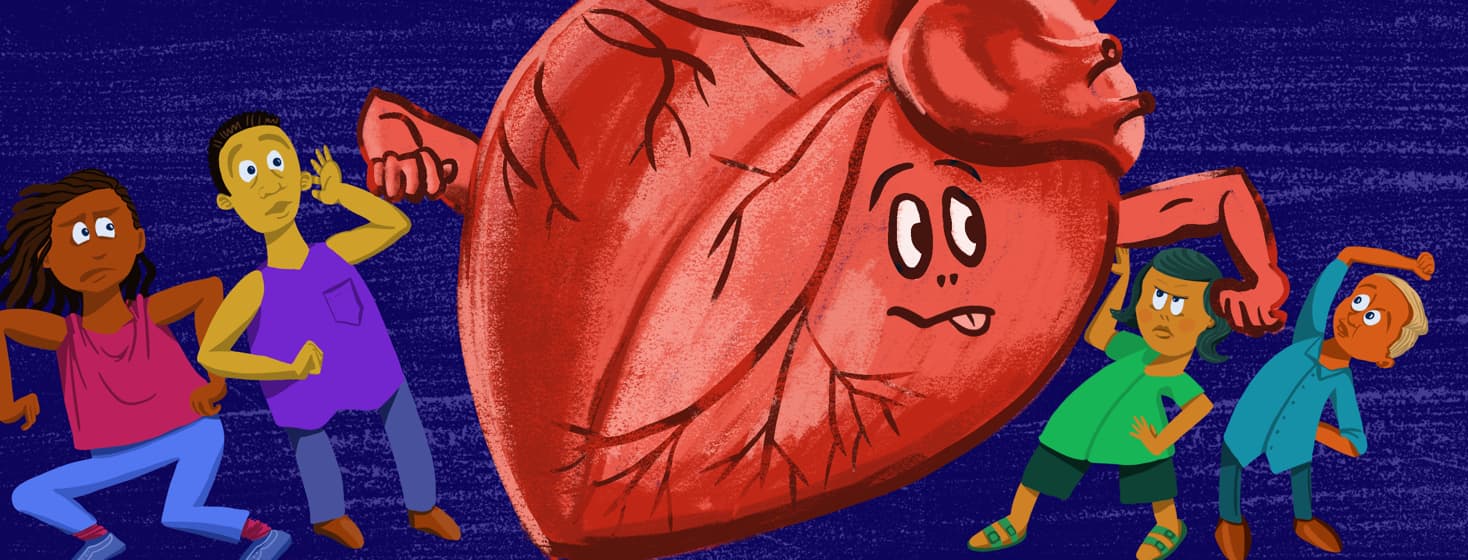How Does the Heart Compensate During Heart Failure?
As heart failure patients, I think we all know that heart failure does not mean that our heart has stopped working. The last time I checked, as a patient, I still had a pulse.
What it does mean is that the heart is a muscle, and this muscle cannot pump as well as it used to. If it can't pump like it used to, this will impact the rest of your body's ability to get the oxygen that it needs (given that the heart's job is to pump oxygen-rich blood throughout the body).1
What is compensation and why does it happen?
Compensation happens because your heart is smart enough to know that it's not getting the blood/oxygen to the rest of the body like it should, so it tries to get more blood out. Compensation can work fine in the short term as the methods the heart uses can get more blood out for a period of time. However, over time, it can make heart failure worse by further enlarging the heart which reduces its ability to perform well.2
Personally, my doctor explained it as the difference between a taught football and deflated soccer ball - the soccer ball might be larger, but it's deflated which makes it much harder to get the air out.
My understanding is that a lot of our heart failure medications are supposed to help our heart work more efficiently, so it is not tempted to try and resort to its own methods to increase the volume of blood it can pump out with each beat. Again though, this is a very general statement and may not be specific to each patient. Ask your own doctor as well if you are curious!
How does the heart try to compensate?
It will beat faster (faster heart rate) and pump more blood with each beat.2
Beating faster
Our brain signals the heart to beat faster. Although beating faster helps to maintain cardiac output (ie the amount of blood pumped out with each beat), a faster heart rate can be counterproductive because the heart cannot fill with blood after each beat. This fast heartbeat weakens the heart muscle over time. As anyone who has been through any sort of physical therapy for a muscle issue can tell you, a healthy muscle needs to be able to contract AND relax.2
Beating harder
This is accomplished by getting more blood into the heart by making the ventricle, or cavity, larger and pumping harder. As mentioned above, a larger heart may seem like a good idea at first; however, a larger heart is a less efficient heart as well.
For example, one of the metrics you will see on an echo report is the enlargement of your heart or your ventricle cavities. The heart also pumps harder by developing thicker muscles to pump more forcefully. However, this also means that the heart muscle's need for oxygen and other nutrients increases as well, which can eventually require more than your coronary arteries can provide.2
Remember, like any other muscle, your heart also needs oxygen-rich blood to work as well! This thickening can also impair the heart's ability to relax properly, which as mentioned above, has a negative impact on the heart's ability to function properly over time.2
All in all, this is another reason why I am in awe of the heart! It is a smart organ and does its best to help us. As mentioned, if you have questions or concerns it is always best to discuss them with your doctor.
Do you have a heart failure story? Click the button below to share with our community!

Join the conversation